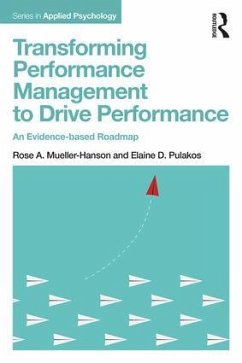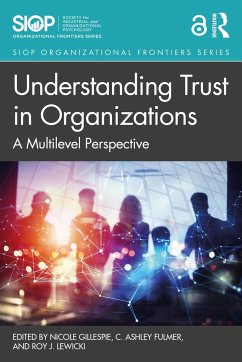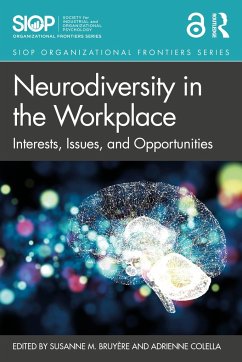
Research Methods for Industrial and Organizational Psychology
Science and Practice
Versandkostenfrei!
Versandfertig in 6-10 Tagen
49,99 €
inkl. MwSt.
Weitere Ausgaben:

PAYBACK Punkte
25 °P sammeln!
This important and useful book offers a clear and comprehensive foundation for research methods in industrial and organizational (I-O) psychology. The text provides readers with a key understanding of the research, theory, and practice needed towards becoming a research methods expert.The use of trustworthy and rigorous research methods is foundational to advancing the science of industrial and organizational psychology and its practice in the field. Understanding this, the authors have paired straightforward, plainly written explanations in a conversational tone with illuminating diagrams and...
This important and useful book offers a clear and comprehensive foundation for research methods in industrial and organizational (I-O) psychology. The text provides readers with a key understanding of the research, theory, and practice needed towards becoming a research methods expert.
The use of trustworthy and rigorous research methods is foundational to advancing the science of industrial and organizational psychology and its practice in the field. Understanding this, the authors have paired straightforward, plainly written explanations in a conversational tone with illuminating diagrams and illustrations. Many descriptions are followed by in-depth demonstrations and examples from relevant software, including SPSS, R, and even Excel when it's the best option available. Insightful and accessible, the text covers the full gamut of I-O research methods, from theory to practice and everywhere between.
Paired with a detailed instructor's manual, this book serves as a gentle but thorough introduction to the complex world of research methods in I-O psychology for both master's and Ph.D. students, as well as researchers, academics, and practitioners.
The use of trustworthy and rigorous research methods is foundational to advancing the science of industrial and organizational psychology and its practice in the field. Understanding this, the authors have paired straightforward, plainly written explanations in a conversational tone with illuminating diagrams and illustrations. Many descriptions are followed by in-depth demonstrations and examples from relevant software, including SPSS, R, and even Excel when it's the best option available. Insightful and accessible, the text covers the full gamut of I-O research methods, from theory to practice and everywhere between.
Paired with a detailed instructor's manual, this book serves as a gentle but thorough introduction to the complex world of research methods in I-O psychology for both master's and Ph.D. students, as well as researchers, academics, and practitioners.














